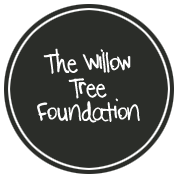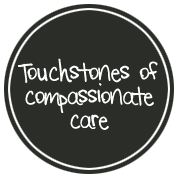HOPE
As defined by Dictionary.com:
Hope: the feeling that what is wanted can be had or that events will turn out for the best.
As written by Barbara Gill in “Changed by a Child”:
Hope is the thing that is willing to take a chance on the future. Hope is the capacity to see something on the horizon that we are willing to move toward. If our hope gets us from today to tomorrow, and in that new day we are ready or able to deal with something we thought we couldn’t face, then hope has done its job.
To quote my friend Christy:
“Hope is a funny thing”.
________________________
As parents, we all have hopes and dreams for our children. As the parent of a medically complex and disabled child, hope is a powerful thing. It is what drives us, carries us and comforts us in the darkest of times.
In the beginning of Jack’s journey, there was so much hope. Despite being a 33- weeker, Jack’s course was uncomplicated and he came home six weeks after he was born - eating and breathing on his own and requiring only a small amount of supplemental oxygen. My hope was simply for Jack to wean off the oxygen. Shortly after he came home, Jack suffered an apneic event (he stopped breathing) and ended up in the PICU. It was discovered that Jack was born with a cardiac anomaly – a vascular ring that was compressing his airway and esophagus. Jack had surgery to divide the vascular ring without complication and when he was discharged from the PICU following surgery, I don’t think anyone expected to ever see us again. I hoped the worst was behind us. Two days after discharge, Jack was readmitted to the PICU in respiratory distress. Jack was ultimately intubated and over the course of three months, multiple attempts were made to extubate him. Each attempt at extubation, I hoped with all my heart that he would make it off the vent so that we could just go home. To no avail. Five months after his first PICU admission, Jack was discharged sporting a trach, ventilator, g-tube and no diagnosis, but with the hope (and expectation) of everyone involved that all the medical intervention was temporary. When I signed off consenting to the trach, I honestly never contemplated that it would be permanent. In the first months of his life, Jack did not present as a child with a progressive neuromuscular disease. In fact, engraved in my memory is a comment made by a neurology fellow during rounds one morning. He looked at Jack and said, “Here is a neurologically healthy child.”
From the moment of Jack’s discharge, my mission – and hope – was to get rid of it all. Occupational, physical and speech therapists invaded our house daily to work with Jack to get him to sit independently, eat by mouth and communicate. I pushed Jack relentlessly and mercilessly. Months passed and the first year quickly faded into the second year. Jack made little progress on all fronts. I was forced to temper my hopes. I went from hoping Jack would get rid of it all to just hoping he would get rid of the ventilator. Couldn’t he at least just get off the damn vent? I literally begged Jack to breathe on his own.
When Jack was three years old, one of his doctors gently suggested that I “needed to make peace with the ventilator.” It was clear to everyone by then that Jack had more going on than initially thought. We still didn’t have a diagnosis, primarily because I refused to follow-up with Jack’s neurologist after Jack’s discharge from the hospital. Whatever she had to say, I wasn’t prepared to hear it at that time. Letting go of the hope that Jack would be able to live without the ventilator was by far one of the most difficult things I’ve ever had to do. It was the ultimate defeat for me because it was what I had so fervently hoped for, for so many years. Losing the g-tube and wheelchair were secondary hopes that could be tackled after we got past the ventilator. When Jack couldn’t get past the ventilator, what was left to hope for?
On Jack’s 5th birthday, I penned out my “new” hopes for Jack in the first of what has since become an annual birthday letter:
“I hope that every morning when he wakes up and every night before he closes his eyes, he feels safe and knows that he is loved. I hope that his days on this earth are lived without pain. I hope he achieves a way to communicate his feelings and desires to others. I hope he stays healthy. I hope he accomplishes all that he is capable of.”
Despite my apparent acceptance of Jack’s limitations and my new hopes for Jack, they were short lived. I wanted more. When Jack started school, I had every hope that he would thrive and be able to show everyone how smart he was. I hoped that his teachers and therapists would find a way for him to express what was going on in his head. Jack got a power wheelchair and I hoped that he would be able to maneuver it on his own and have some control over his life. Jack was beginning to make progress with his schooling, his communication and his wheelchair until one fateful day in 2004 when he disconnected himself from his ventilator and suffered an anoxic event – an event that stole so much from him. It was devastating and I was, once again, forced to temper my hopes for Jack.
My hopes were renewed when Jack got his state of the art eye gaze computer system. I hoped with everything I had (almost as much as I had hoped he would ditch the vent) that he would finally be able to communicate with us. I imagined him using his eyes to write us a letter, sharing all the thoughts that had been held captive in his head all these years. I really, really hoped we’d found the key to “unlocking” Jack. Despite all my hopes, Jack is unable to effectively communicate using his eye gaze system.
I have since learned through my involvement with Cure CMD that Jack’s subtype of muscular dystrophy can cause cognitive impairment that affects the ability to communicate. The reality is, Jack will never be able to communicate in the way I had hoped because of his disease. Jack will never talk, walk, eat or breathe on his own. Not one single hope that I had in the beginning of this journey will ever come to be.
Imagine what it’s like when your child is living the worse case scenario for someone with his disease. Much of Cure CMD’s mission is to find ways to slow down the progression of the disease. The hope is to help individuals NOT end up like Jack. How’s that for a hope buster?
It’s difficult to know what to hope for anymore. I certainly no longer hope that what I want can be had. Some might tell me to go back to the hopes that I had on Jack’s 5th birthday – that those hopes are good enough. Some days, those hopes are good enough. Other days, it feels like giving up.
I continue to allow teachers and therapists to come into my home. I continue to sit Jack in front of his eye gaze system. Because, the fact is, hope is a funny thing. Hope is what allows you to take a chance on the future. Hope is what gives you the strength to get up each day and “keep on keeping on”.
For those reasons, I continue to Hope.

















